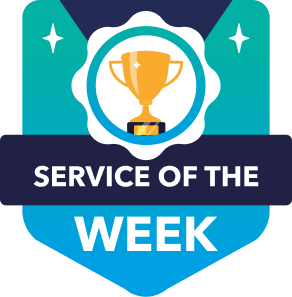Affiliate marketing is an easy way to earn passive income. But all successful affiliate marketers know that they need to hustle hard if they want affiliate marketing to be a viable full-time career.
So what does a typical day in the life of an affiliate marketer look like?
In today's post, we'll give you a look at what sort of tasks an affiliate marketer has to deal with in a day.
How Affiliate Marketing Works
Before we begin, we should point out how affiliate marketing works. One of the best features of affiliate marketing is just how flexible it is. Once you have everything set up, you're free to do whatever you want.
You can either grow your business, maintain it, or expand it further.
That is to say that affiliate marketers don't have to do everything on this list every single day. For example, if you've already done your research, you can dedicate your entire day to writing content. But for someone who's always looking for new affiliate niche opportunities, then they will make research a part of their morning routine.
There are also marketers who flip their schedules around and do tasks normally assigned in the afternoon in the morning instead (and vice versa).
As an affiliate marketer, you are in complete control of your schedule.
The guide below is just that — a guide.
Mornings
Your average affiliate will start the day off with less intense tasks which include niche and keyword research. Not only do these give the body time to wake up, but they're also tasks that can be done at a slower pace.
If an affiliate marketer decides to take on a new niche, this is the time when they'll set up a new website and develop a content strategy for it.
Affiliate marketers love taking advantage of the freedom that comes with the job. So on days where there's less work to be done, mornings are spent traveling from one location to another. Most of these tasks can be done while on the go or saved for the afternoon.
Researching Profitable Niches
An affiliate marketer can spend the whole morning researching niches to create a new affiliate program. The more niches an affiliate has, the more potential earnings a marketer gets.
However:
Affiliate marketing only works if you work with profitable niches. That's why marketers only spend time researching fields that have the potential to bring in larger revenue.
Ideally, they want to work with niches that they are knowledgeable about. However, some marketers are comfortable diving into topics they have little to no understanding of. They'll either do additional research or hire people who are experts in the field to generate content to promote.
Another reason why research can take up an entire morning is that marketers want to find the best niche and the right keywords for it.
A successful affiliate marketer will likely be subscribed to a digital marketing service that includes keyword research capabilities. Ahrefs and KWFinder are two popular examples.
But for those that are just getting started, a tool like Google Keyword Planner should be enough.
Anyone with a Google account can log into Google Ads to access the feature and use it for free.

After performing a search, you'll be presented with a lot of data. Not only will these tell you which affiliate niche has high demand and competition, but these will also let you know what specific terms you should use to drive traffic to your site.

Ideally, you want to find low-hanging fruit keywords. The term refers to keywords that have high average monthly searches and low competition. You'll find this information clearly labeled columns within the results.
Affiliate marketers love low-hanging fruit keywords because they are easier to rank in the search results.
You'll also get results for related keywords under Keyword Ideas. Affiliate marketers will use these to either find other niches worth exploring or optimize their web pages to boost site traffic.
We suggest that you use these terms for search engine optimization. You'll want to spread these keywords across your site to appear in all relevant Google search queries.
Setting Up a Website

Affiliate marketers can also spend their mornings setting up new websites for new projects. This isn't something they have to do every day but it's still something worth mentioning.
If you're thinking of setting up an affiliate site yourself, here's a tip:
You can use any service that you want but marketers will recommend that you use WordPress as your content management system (CMS). As a CMS, WordPress is easy to use, highly customizable, and deeply supported. You'll have no trouble finding resources that will help you run a WordPress site.
As far as hosting goes, there are plenty to choose from. Cloudways and WPX Hosting are good options.
Developing a Content Strategy
Affiliate marketers don't need to perform research or develop new sites every day. But developing a content strategy is a huge part of affiliate marketing. So they will spend a lot of time planning their next few posts for maximum impact.
Using the keywords they researched, they'll know exactly what types of posts they need to create to attract their target audience.
They will also look into content-building strategies such as the Keyword Golden Ratio. Using this technique, marketers are able to find keywords that don't generate as many results. This is the ideal strategy for affiliates that just launched a brand new website.
Another strategy worth looking into is SEO Avalanche. The technique is hard to explain but here's the general gist of it: You try to determine where you are in Google's organic tiers, find 30 to 45 keywords that generate about the same visitors as your organic tier, and then publish one article a day using those keywords.
Afternoon
The afternoon is reserved for tasks that require more thinking. By this time, the brain is firing on all cylinders. That means marketers are ready for creative jobs like writing and promoting.
This is also a great time for building backlinks. Sometimes, a marketer will reach out to site owners in the morning and see if they respond in the afternoon.
There are also marketers that manage to finish all their tasks in the morning. In that case, they'll spend their afternoons relaxing, running errands, or spending time with their loved ones.
It will really depend on how you pace yourself. If you're still at the beginning of your affiliate marketing journey, then you'll likely end up spending both your mornings and afternoons growing the business. But once you're settled, you can work at your own pace.
Writing Content
Content writing might possibly be the most time-consuming task on an affiliate marketer's list. That's why they block out hours of their day for writing.
In the interest of saving time, some marketers hire freelance writers. They will then use their afternoons checking or editing the articles submitted to them. It still takes time but it's significantly less than writing a post from scratch.
There are pros and cons to hiring freelancers though:
Pros
- Saves Time — When you outsource tasks, you're able to focus on other aspects of your online business. For instance, you can continue researching keywords or optimizing your website.
- Saves Money — Outsourcing can be cheaper than hiring an in-house team (if that's something you're considering).
- Scales Easily — There's only so much content you can write by yourself. If you're starting a website from scratch, outsourcing writers could be your ticket to publishing content at a faster rate.
Cons
- Gives You Less Control — Sometimes you'll get lucky and end up working with writers who know what they're doing. But it's also possible that you end up with people who'll resort to shady writing practices like plagiarism. There's also the chance you end up with poorly written content. You won't have as much control over the result.
- Messes Up Your Tone — If you're handing over the work to several people who don't know each other, there's a good chance that you'll end up with articles that have different tones. Having a consistent tone is important when developing a brand. Outsourcing can ruin that.
- Involves Working With Non-Experts — At least for the most part. You can work with writers that are knowledgeable in your field. But as affiliate marketers would tell you, there's a good chance you'll end up with writers who know nothing about your niche. And if you're an expert in your field, that can be quite frustrating.
Outsourcing is a mixed bag. But if you choose your writers carefully and know exactly what to avoid, it can be a lifesaver.
The best thing to do is write your content yourself. At least until you get yourself off the ground. That way, you can set the right tone for others to follow should you ever decide to work with other people down the road.
If you're afraid of making SEO mistakes or typographical errors, don't worry. Even affiliate marketers use tools to keep their content polished and optimized.
To fix your grammar, you can subscribe to a Grammarly account. This tool lets you know if there are typos in your document and offers suggestions on how you can fix them.

And for those that want their content to be fully optimized for search engines, there's Surfer SEO. This tool helps its users optimize their content by providing suggestions on what keywords to insert.
Joining an Affiliate Program
The later part of the afternoon can be dedicated to finding new affiliate programs to join. Again, this is not something marketers need to do every day. But those that need to find new products or services to promote will need to set aside some time for finding them.
There are plenty of programs to choose from. Some have stricter qualifications than others. And there are those that offer smaller commissions too. So marketers have to do a ton of research to see which affiliate offers a better return for their troubles.

Here are some programs that affiliate marketers like:
- AWeber — An email marketing software that offers up to 50% commission for referrals.
- Thinkific — This online course platform offers up to 30% lifetime recurring commission on all paid subscriptions whether they're paid monthly or annually.
- Bluehost — You get $65 for every person you refer to this web hosting platform.
- Target — Target lets you earn up to 8% when you promote Target products through its Partners Program.
- Sandals Resorts — Commissions start at 4% across all of Sandals Resort's products which include luxury suites and private candlelight dinners.
- Elementor — This website builder offers a 50% commission on every sale of its Elementor Pro Plugin and $70 for every new Elementor Cloud Website subscriber.
- SEMrush — This all-in-one SEO tool pays $200 for every new sale, $10 for every new trial subscription, and $0.01 for every new sign-up.
Affiliate marketers would advise newbies to find the right balance between commission rates and popularity when building niche sites.
When you find an affiliate network that you're comfortable with, you can start linking to affiliate products.
Promoting Content
An affiliate marketer's job isn't done after publishing content and inserting affiliate links. You see, affiliate marketers are not satisfied with ranking for Google searches. They'll do whatever it takes to drive as many eyes on the content that they publish.
If there's nothing else to do for the day, an affiliate marketer will spend that time promoting their latest posts on social media and other platforms.
For example, there are marketers who'll use Instagram to promote clothes and other apparel. They will then use an affiliate link to direct users to a page where they can buy the items.
Some marketers will also use the rest of the day to create YouTube videos. They use YouTube to talk about a product and then ask their viewers to use their affiliate link if they're interested in trying the product.
However, promoting content isn't only done to sell products. Self-promotion is also good for bringing more eyes to your site and boosting your credibility. The more people know about you and what you stand for, the more they'll believe in what you have to say.
When you have your audience's trust, they'll be more inclined to try the products you're promoting.
Of course, it's important that you maintain their trust. So don't sell them anything that would put you in bad standing with your followers. As a rule of thumb, see to it that you're not promoting anything that wouldn't buy yourself.
Building Backlinks
On some afternoons, affiliate marketers would contact third-party sites to pitch them things that could earn them backlinks.
There are different approaches they take to get backlinks.
Sometimes they will create resource articles where they compile online resources that are relevant to their niche.

They can also write guest posts. These are a tried-and-tested way of gaining backlinks from high-authority websites. Not only that, but they are also a fantastic way of promoting your brand to a whole new audience that shares the same passion that you have for your niche.
Some publish reviews of products and services. It's quite common for affiliate marketers to publish reviews on their sites.
Free Time
There are tasks that affiliate marketers do in the evenings or on weekends. These are not as complicated as some of the other tasks on this list. That is why affiliate marketers can perform these while on the go, during their downtime, or anytime in between.
Analyzing the results of their work, for instance, is something that can be done using a smartphone. So they can quickly scroll through their progress reports to see if something is wrong while commuting.
Analyzing Results
Marketers review the results of their affiliate campaigns through Google Analytics and Google Search Console. This helps them determine which articles are bringing in traffic and which ones they'll need to refine further.
This will also show data on which low-hanging fruit keywords they have to improve on.
They also check the following:
- Affiliate Traffic — You should look at the traffic you are directing toward the advertisers. This will help you gauge which products are resonating best with your audience.
- Earnings — It goes without saying that the earnings you receive will be a good indicator of which affiliate programs are working and which ones you should consider letting go of.
- New vs Returning Audience — You'd also want to check how many new users your site is getting versus how many of them are returning users. You want to keep adding new users that you could introduce products to while maintaining the old users to keep your site traffic up.
Selling the Site
There comes a point when selling an affiliate site is better than maintaining it. So when they have free time, they take a moment to think about the path they need to take.
There's an argument to be made about selling an affiliate site for profit. The idea is for you, the marketing affiliate, to get a huge sum upfront instead of collecting a monthly income.
Some people would rather buy a working (and earning) affiliate site rather than build one from the ground up. The affiliate marketer could then use the money to start a new business or reinvest it on another affiliate site. So it's a win-win for everyone involved.
If you're profitable enough to even consider selling your affiliate site, there are things that you have to know.
The first and most important one is knowing the value of a website. That means reading up on website valuations. The market value of a website can change at any given time. As of 2022, the average value of a website would be its monthly earnings multiplied by 35 to 45. But that could change at any point.
When selling a site, you should also have analytics data for the past year. And you should have a verifiable track record of your revenue.
You should also start collecting data and other assets you might need one year before the sale. So some forethought will go a long way. It's better that you decide on whether to sell a site or not at least one year in advance.
Finally, you'll want to research where you'll sell your website. Do you want to work directly with a private buyer? Or maybe you'd rather list it in a public website marketplace? How about working with a website brokerage?
These are just some of the things you should be thinking about.
Pros and Cons of Affiliate Marketing
- Pro: It Is Passive Income — Once you have everything set up, affiliate marketing can be a side business for additional income. We know we just talked about everything a marketer does in a day but if you schedule it properly, all these tasks can be done in a couple of hours per day.
- Con: It Will Take Time — Affiliate marketing won't make you rich overnight. You'll have to keep at it before you start earning money.
- Pro: It Is Cost-Effective — You don't need to spend a lot to get started. At the very least, you'll need a website. You can develop a website for cheap with the right web hosting platform.
- Con: It Is Competitive — There are a lot of competitors out there. So you'll have to find ways to outperform all of them on search engines and social media platforms.
- Pro: It Is Scalable — You can focus on one niche if you don't have that much time to spare. Or you can continue growing your business to include more. You can scale it so easily.
- Con: It Requires a Large Audience — You need to have a good following to make the most out of an affiliate marketing campaign. If your site doesn't get any traffic, you might not make any money.
Life of an Affiliate Marketer: Conclusion
As you may have realized by now, getting to the top of the affiliate marketing game is no joke. Marketers have to continuously find new niches to explore, research relevant keywords, build up their content library, promote their sites and products, and monitor their analytics.
Can you handle an affiliate marketer's schedule?
We think everybody can.
After the initial setup, you have much more control over your daily activities. Some marketers will travel half of the week and check on their progress when they have the time. Some can do all their work in the mornings and use the remainder of the day to do whatever they want.
But if you're focused on continuously growing your affiliate business, then you'll need to stick to a schedule. Adding more niches to your portfolio means having to do more research and content. You'll also have to spend time promoting your site and getting backlinks.
Still... with proper time management, you should still be able to have time for the things you love in life and run a successful online business through affiliate marketing.













 Download
Download